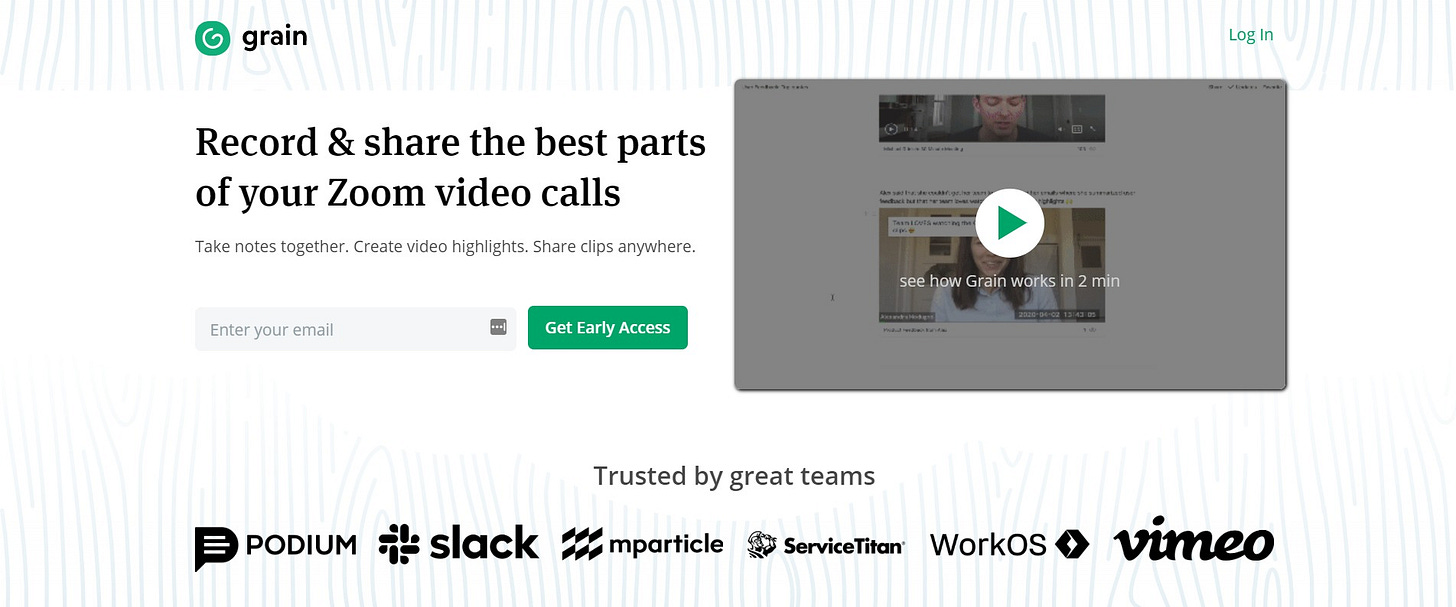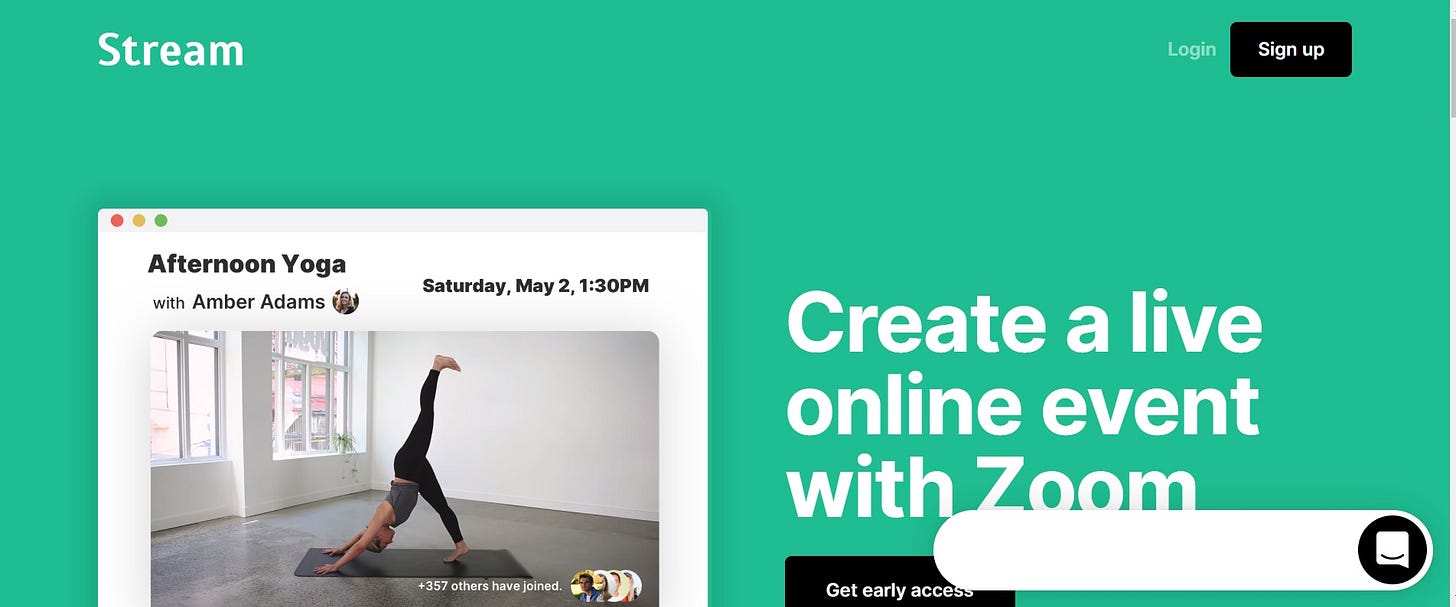There's a certain level of ubiquity and power that you only attain when other people start building companies based on your product.
Think of Amazon sellers, iPhone developers, and Facebook game makers.

The newest member of the category? Zoom.
Zoom-based startups are suddenly everywhere:

Grain built an app that lets you clip, note and share important moments of your Zoom call. It's been working on the app since 2018, and went public recently. Good timing.

Fireflies offers similar features — you can search through a call recording, mark important moments, and transcribe or record meetings.

Stream hopes to make it easier for people to host events, particularly paid ones, on Zoom.

Otter, a voice-to-text transcription company, just released a new feature that integrates its live transcription directly into Zoom.
Why Zoom? Simple: Zoom is winning. The company announced it's now up to 300 million daily users, and has become the default video tool for people everywhere. "We use Zoom because it's what my 65-year-old aunt is familiar with," Stream co-founder and CEO Lan Paje told me. "It's the tool of the moment."
Zoom's also built a powerful, easy-to-use API, Paje said. "I'm surprised a lot of other developers haven't used it yet — you can do a whole bunch of different things that you probably wouldn't think of."
Otter CEO Sam Liang agreed: "They've been very helpful, very supportive." Otter actually provides Zoom's existing meeting-transcription feature, which Liang said has been used to transcribe 25 million meetings totaling more than 750 million minutes.
Zoom still has security issues, but they're clearly not dissuading users from jumping on the platform — and they're not dissuading developers, either.
Paje told me the only thing he's worried about is Zoombombers: "They don't really have a great solution for preventing it."
That's also a problem for event organizers who want to make sure only people with tickets can get into the Zoom room — Zoom just doesn't have a good way to control who's in and who's out.

When coronavirus is over, Zoom seems to want to go back to being a business tool.
But it's looking likely that it's going the other way — that Zoom's going to be part of the way people communicate and participate in things going forward.
"Every single physical event can also be a virtual event," Paje said. "And people are paying for virtual events now."
David Pierce is the Editor-at-Large at Protocol. © 2020 Protocol.


